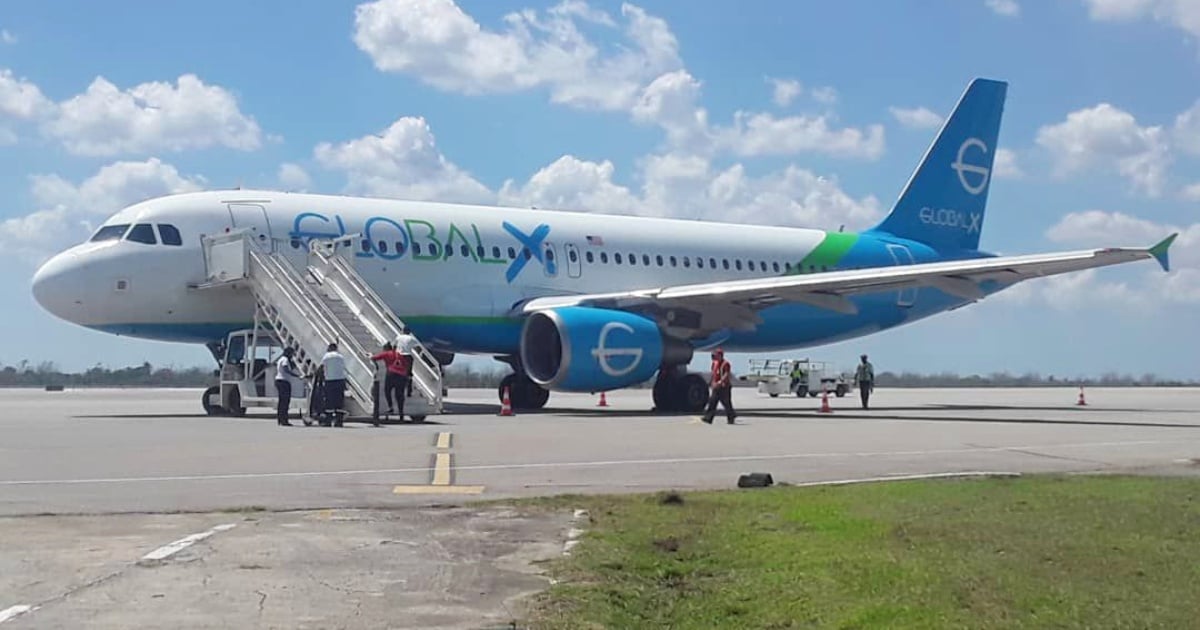
Related videos:
This Thursday, the United States deported to Cuba 60 irregular migrants -55 men and five women- on a flight that arrived at José Martí International Airport "as part of the bilateral migration agreements", according to the Ministry of the Interior (MININT).
Two migrants were detained upon arriving in the national territory: one person was transferred to investigative authorities for their alleged involvement in criminal activities prior to emigrating, and the other for having illegally left the country while on parole.
Although the MININT mentioned a flight that took place on January 23 and another on February 27, only the latter was covered by official media, which arrived on the island with 104 deported citizens.
The Ministry of the Interior specified that, with today's flight, there have been 13 deportation flights of Cubans so far in 2025, coming from various countries in the region, with a total of 367 migrants returned.
"Cuba remains firm in its commitment to regular, safe, and orderly migration, while reiterating the dangers and life-threatening conditions posed by illegal departures from the country by sea," concluded the official statement, which did not provide further details about the deportees.
At the beginning of this month, Carlos Fernández de Cossío, Deputy Minister of Foreign Relations of Cuba, denied that the Trump administration had addressed the immigration issue or a possible increase in the volume of deportations with the island's government up to that moment.
"There has been no request of that nature from the U.S. government," said the senior official in statements reported by the agency Reuters.
"We haven't yet sat down to discuss whether that would be possible", he added.
The emphasis that the Cubans who arrived on the island this Thursday did so "as part of the existing immigration agreements" is an indication that this is part of the monthly flights that have been carried out since April 2023, when deportation agreements were resumed with the then Biden Administration.
According to the current immigration agreements dating back to the 1980s, Cuba has routinely accepted immigrants deported from the United States by air and sea.
Would Cuba accept as deportees citizens who have benefited from humanitarian parole?
In statements to Reuters earlier this month—when the revocation of humanitarian parole and the promise of deportation for some beneficiaries of that program were not yet a reality—Fernando de Cossío warned that “the large-scale deportations of Cubans who were initially legally admitted to the U.S. were never contemplated in the migration agreements between the two countries.”
Such a statement suggests that the regime would not easily facilitate the return of Cubans who have previously benefited from humanitarian parole to the U.S. government.
The deputy minister pointed out that when the agreements were signed, the possibility that the United States would admit and then deny entry to individuals was not considered reasonable at that time.
Therefore, "anything similar would have to be discussed," added the diplomat, who refused to say whether the Cuban government would be willing to cooperate with such an agreement, describing it as "unrealistic and unfair."
Migration negotiations between the two countries have seen both progress and setbacks in recent years.
The last bilateral meeting between Cuba and the U.S. on the migration issue took place in December 2024, before the start of President Donald Trump's second term.
Frequently Asked Questions About the Deportations of Cuban Migrants from the United States
How many deportation flights of Cubans have occurred in 2025?
So far in 2025, 13 deportation flights of Cubans have been conducted from various countries, resulting in a total of 367 migrants returned to the island.
What is the Cuban government's stance on deportations from the U.S.?
The Cuban government remains committed to regular, safe, and orderly migration, accepting deportations as long as they are carried out in accordance with the current bilateral agreements. However, it has described the possibility of mass deportations as "unrealistic" and "unfair", especially for those who were legally admitted into the U.S.
What immigration agreements exist between Cuba and the United States?
The migration agreements between Cuba and the United States, dating back to the 1980s, establish the routine acceptance of immigrants deported from the U.S. by air and sea. These agreements do not include mass deportations of Cubans who were initially legally admitted to U.S. territory.
What are the conditions of migrants deported to Cuba?
Deported migrants to Cuba face difficult conditions upon their return, often without guarantees of reintegration into a impoverished society. They encounter interrogations and limitations when seeking employment, in addition to being monitored by the Cuban state.
What implications would a Trump administration have for the deportations of Cubans?
A Trump administration is expected to tighten immigration policies towards Cuba, potentially considering mass deportations. However, beneficiaries of the Cuban Adjustment Act may be less affected, as this law provides a pathway to legal residency for Cubans after one year of staying in the U.S.
Filed under: